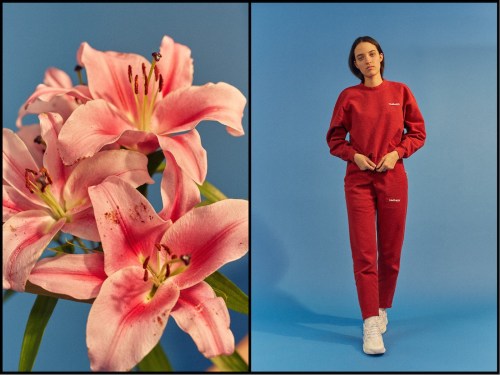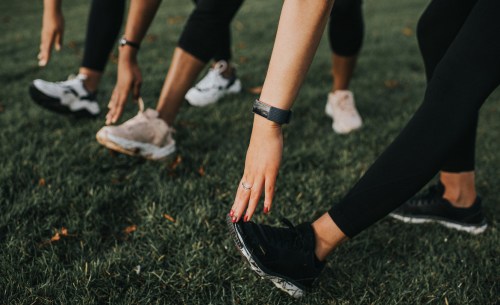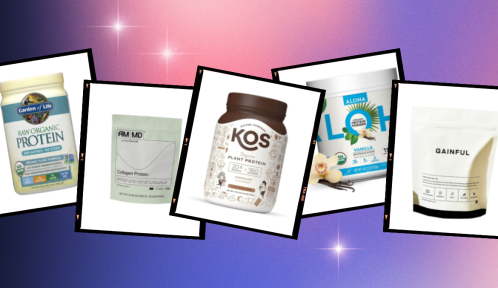Sure, buying a new pair of platform sneakers or bike shorts can give you a little hit of happiness in the moment. (Dopamine, I know what you’re up to.) But can fashion make a meaningful difference when it comes to improving mental well-being in the long term?
A small but growing contingent of brands are banking on it. While their aesthetics and missions are all a little different, each one draws on the lessons of the mental health realness movement—namely, they’re aiming to start a conversation around mental health concerns in order to normalize and destigmatize them.
One of the first entrants to the scene was Madhappy, a streetwear brand that launched in early 2017 with a self-proclaimed ethos of optimism and inclusivity. In addition to tees and sweats in cheerful colorways, Madhappy also delivers events featuring mental health pros as speakers. This year, it launched a blog filled with original content and resources pertaining to the topic. “We had seen the rise of celebrity suicides in the press alongside heightened levels of social media abuse all around us, and we wanted to create a brand that could combat that,” says Peiman Raf, one of Madhappy’s four cofounders. “We felt that no brand has been a champion for mental health awareness and were motivated to tackle such a global issue.”
Madhappy’s currently working to form charitable partnerships with mental health non-profits—a tactic that’s proven to be pretty powerful for other companies. Last year, lifestyle brand Ban.do launched a collaboration with jewelry maker Iconery, featuring nameplate necklaces that read “anxiety,” “depression,” and “bipolar,” among other phrases. That initiative has since raised over $100,000 for Bring Change to Mind, a mental health non-profit started by actress Glenn Close.
Another apparel brand, Own Your Stigma, donates 15 percent of its profits to an organization called Living Outside of Suffering and Trauma (LOST), which had lost 40 percent of its funding shortly before Own Your Stigma launched. By enlisting social media influencers to wear its slogan tees—emblazoned with phrases like “Naps, Cats, and Mental Health” and “It’s Okay to Not Be Okay”—the brand has reached a level of success that’ll soon allow it to add another non-profit beneficiary to its list.
“Any time we widen the conversation around something once considered taboo to talk about, we bring more awareness and attention to the issue.”—Alison Stone, LCSW
Obviously, raising money for the cause is great. But Ban.do marketing manager Cristina Foos says that wearing a mental-health message on one’s chest can create change on a more personal level as well—in fact, she’s seen it happen firsthand. “The necklaces have affected our customers in a variety of ways,” she says. “They’re conversation starters; they serve as a memento that reminds people they’re not alone; they’ve helped strengthen connections with friends and family and they let people have a tangible way to feel in control of their illness.” For this reason, Foos adds, Ban.do has more products in the works that’ll speak directly to mental health and “engage active participation from our customers.”
From a professional’s perspective, therapist Alison Stone, LCSW, thinks it’s important to recognize that mental illness is an incredibly complex topic without a simplistic solution. “Mental illness exists on such a spectrum, and one person’s experience with anxiety, depression, [or any other illness] is going to look very different from another person’s experience,” she says. “We are only in the beginning stages of having a more educated and honest discussion around mental health and should just be cautious around generalizing and assuming homogeneity.”
That said, she also feels that fashion brands can, indeed, be helpful allies when it comes to normalizing mental health issues. “Stigma is still one of the biggest barriers people cite in preventing them from entering into therapy or other forms of treatment,” Stone says. “Any time we widen the conversation around something once considered taboo, we bring more awareness and attention to the issue.”
As Madhappy cofounder Noah Raf points out, fashion is an inextricable part of the broader culture—and so it makes sense that it should reflect such an important topic as mental health. “We always saw Madhappy as bigger than just clothing,” he says. “There were many synergies in using fashion as a platform to create the conversations that were very much lacking.” Here’s hoping that more brands step up to join the discussion.
Opening up about mental health can be tough, so we asked experts how to make the conversation as productive as possible. Or, if you don’t feel like talking, journaling can help.
Sign up for the Well+Good SHOP Newsletter
Get exclusive deals on wellness, beauty, fitness, and food products that have been hand-picked by our editors.
Got it, you've been added to our email list.








